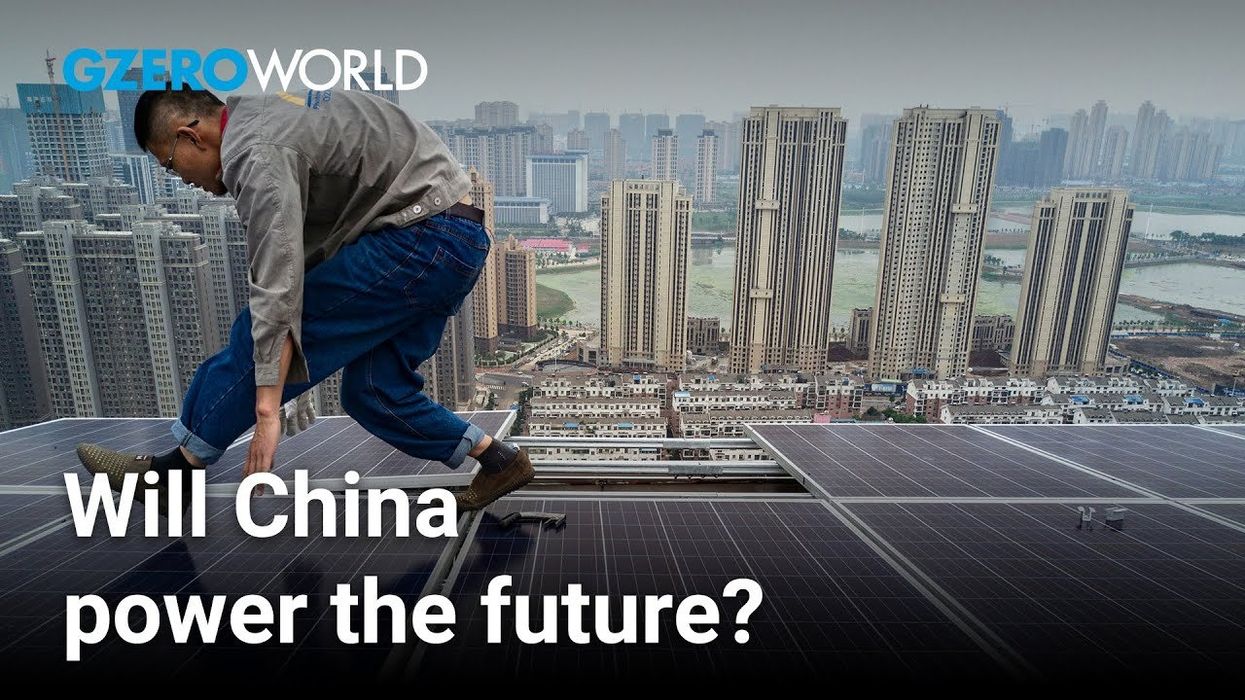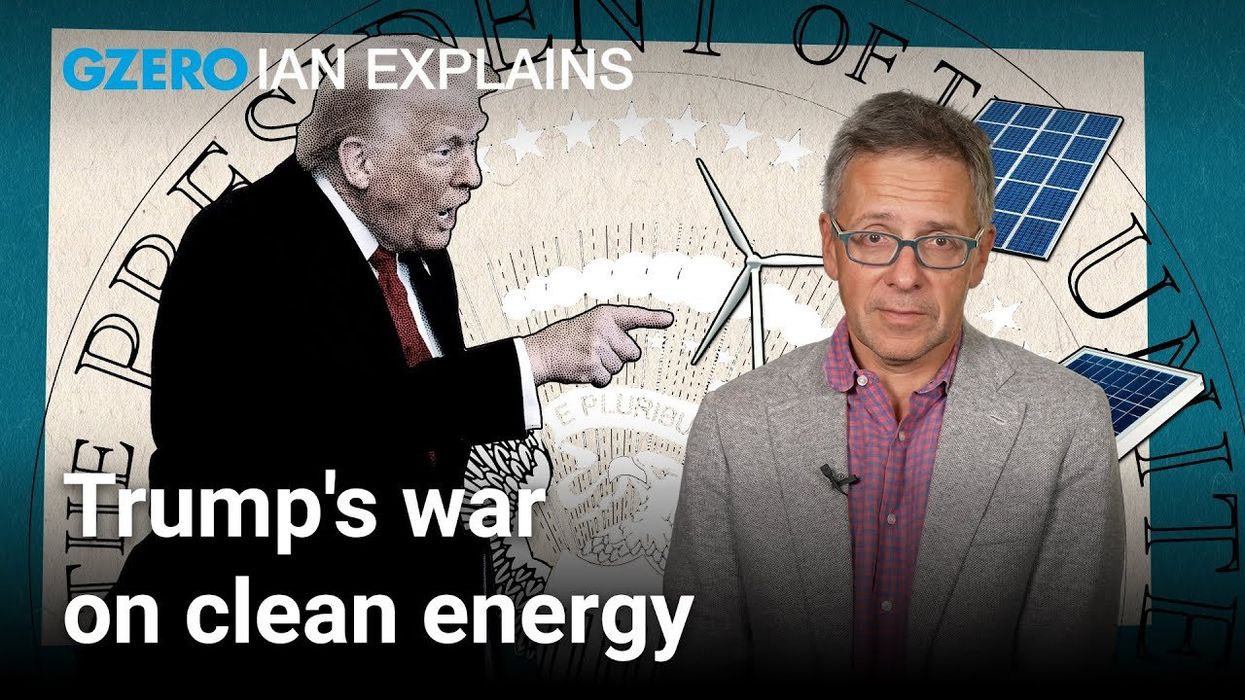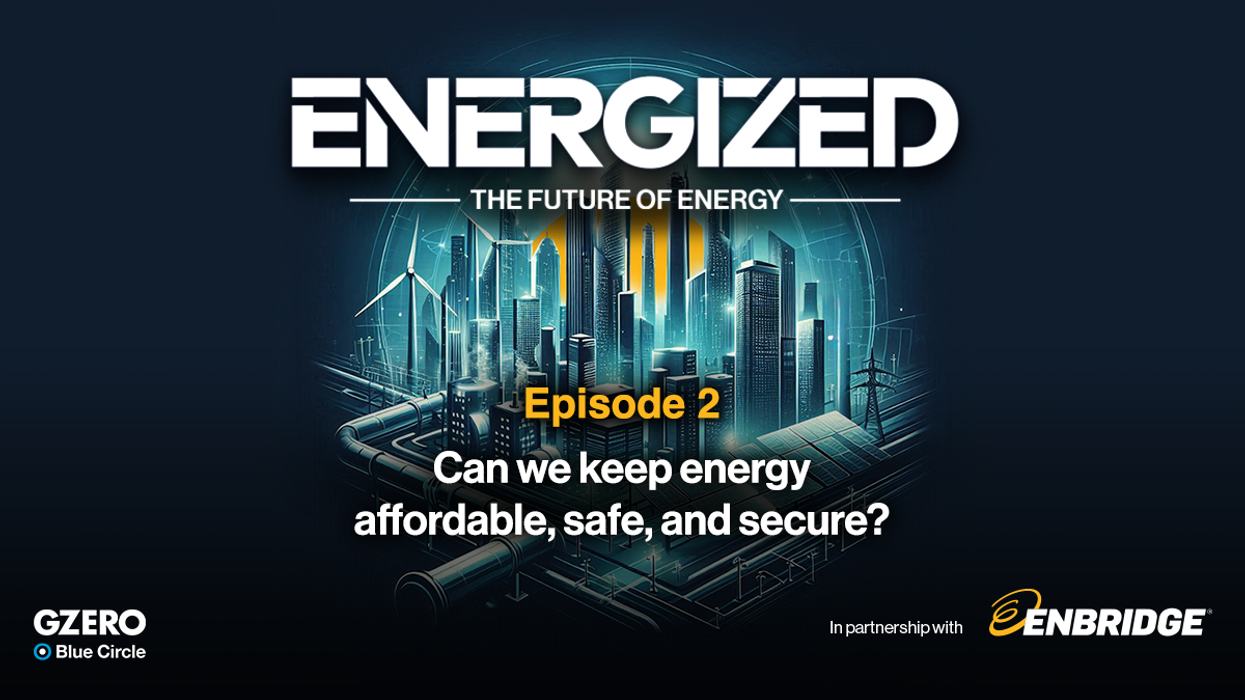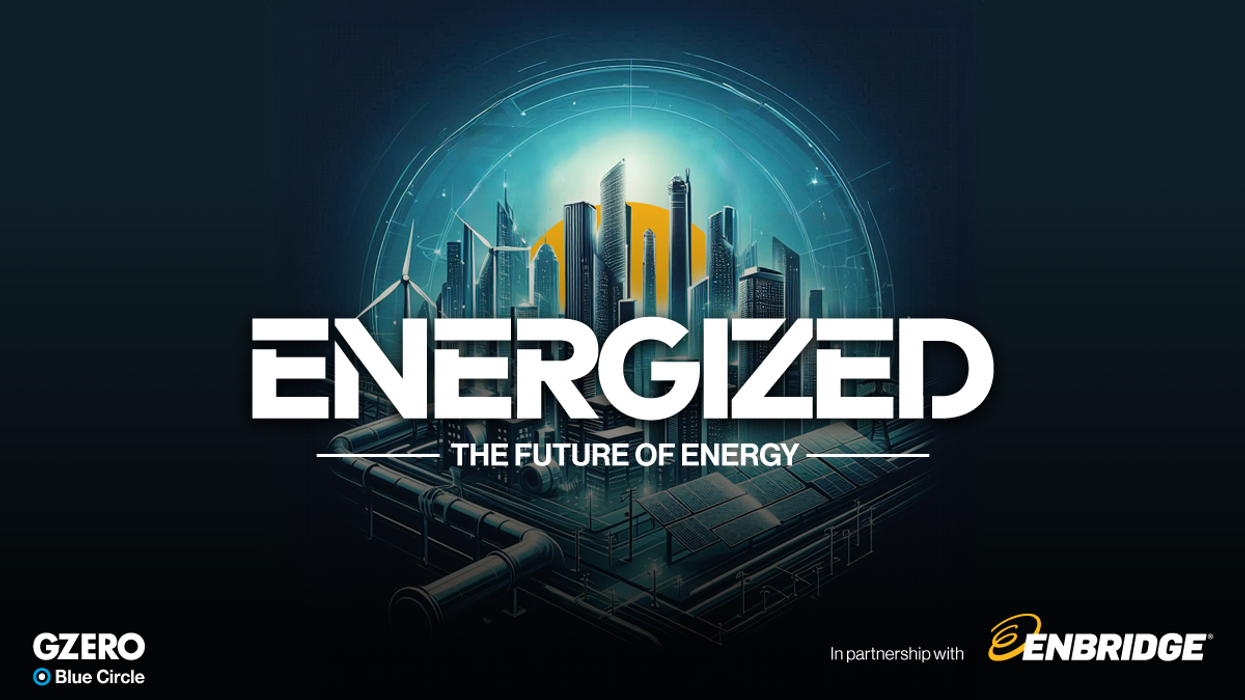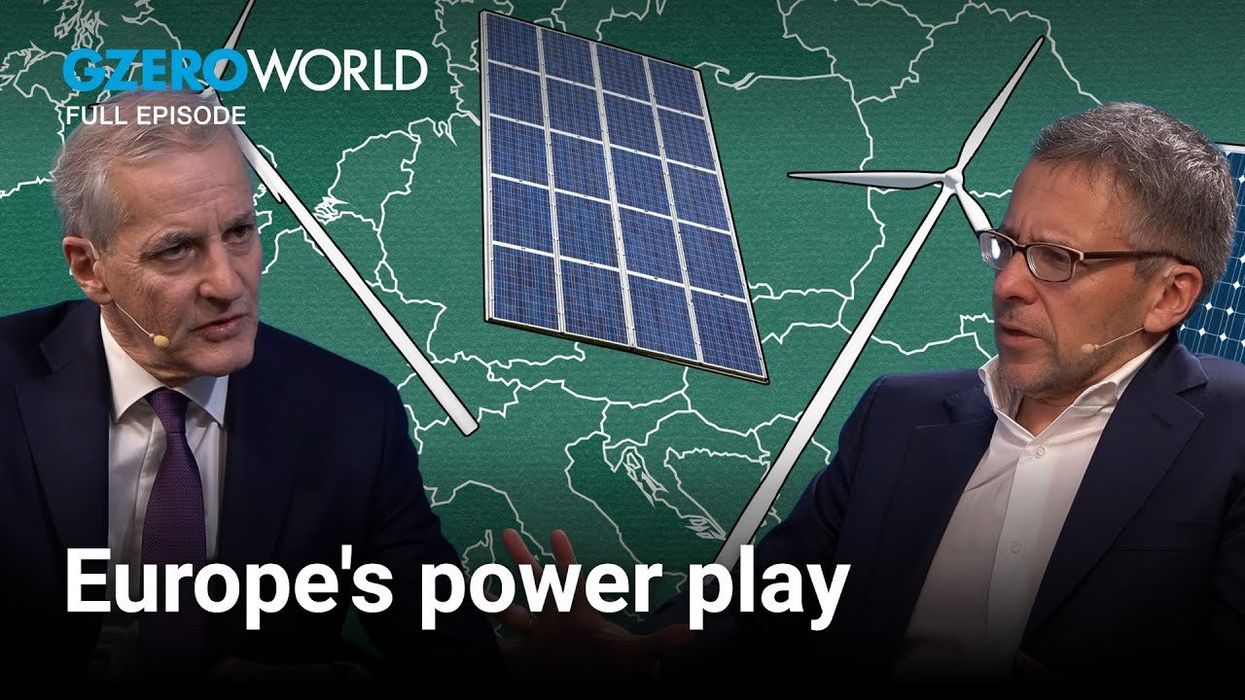GZERO World Clips
China is winning the clean energy race
China is going all in on renewables, breaking monthly records on clean energy installation and generation. Bill McKibben tells Ian Bremmer that Beijing's bet on solar and wind gives them a competitive edge on a new episode of GZERO World.
Sep 16, 2025
